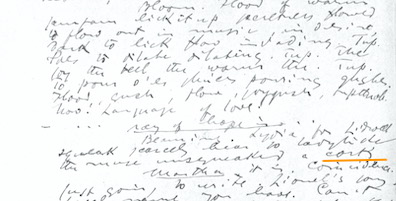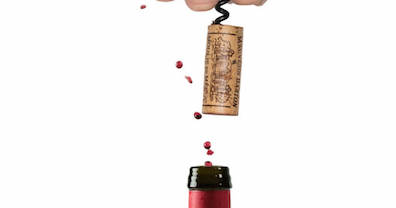
The word "cork" as recorded in the Rosenbach manuscript. Source:
John Hunt.

Source: pullthecork.co.uk.
Ray
of hopk
In the first edition of Ulysses, Lydia Douce serves
George Lidwell a drink while listening to Simon Dedalus sing M'appari,
and a phrase from that song, "ray of hope," enters the
narration: "Lydia for Lidwell squeak scarcely hear so ladylike
the muse unsqueaked a ray of hopk." The final letter would
seem to be a typesetter's error, one of thousands in the
Shakespeare & Co. text, and indeed it was corrected to
"hope" in the Odyssey Press editions of the 1930s. But
Gabler's 1984 edition restores the nonsense word
"hopk"—properly so, since Joyce evidently wanted to insinuate
the sound of a cork popping out of a bottle.